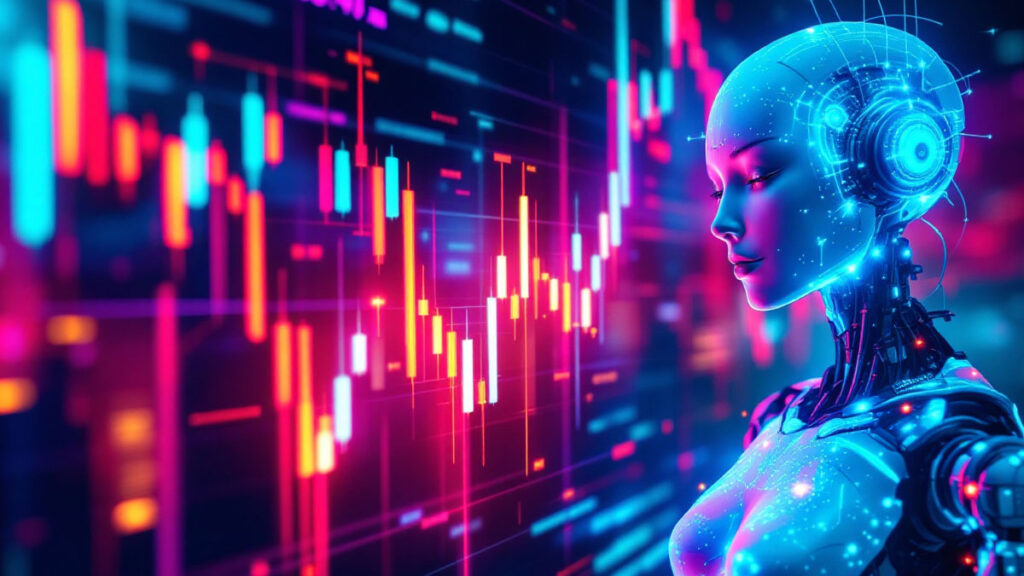
Artificial Intelligence (AI) is quickly changing our lives, and the world of trading is also affected by these changes. Using advanced algorithms and machine learning techniques is growing in finance and stock markets, helping to analyze data better and make more accurate predictions. But an important question is: can AI fundamentally change trading in the future and have a positive impact on it? In this article, we will look at this question from different angles.
- Better Data Analysis
Financial markets have complex and volatile data, making it hard for traders to analyze them precisely. AI, with its power to process large amounts of data, can help in faster and more accurate analysis. Deep learning algorithms and artificial neural networks can find hidden patterns in data that humans might not be able to see. This ability allows traders to make better decisions and gain more profits from market fluctuations. For example, AI can improve technical and fundamental analysis, helping traders identify buy and sell signals more accurately. This can lead to fewer mistakes and better investment returns. - Algorithmic Trading
One of the most significant uses of AI in trading is algorithmic trading. Algorithmic trading is when buying and selling of securities is done automatically using algorithms without direct human involvement. These algorithms, based on data analysis and math models, identify the best time to buy or sell. Algorithmic trading has the advantage of removing human emotions, which can lead to poor decisions. Also, it operates much faster than manual trading. Since financial markets are very volatile, the ability to execute trading decisions quickly can be crucial. As a result, algorithmic trading might become one of the main trading methods in financial markets in the future. - Price Prediction and Risk Reduction
Predicting prices in financial markets has always been a big challenge for traders. Unpredictable market fluctuations can lead to huge losses. But AI, by analyzing historical data and using complex prediction models, can help traders make better predictions and decisions. Price prediction models based on neural networks and machine learning can forecast future market trends with higher accuracy. This helps traders manage their risks better and develop better strategies to deal with market fluctuations. For example, using price prediction models can help traders identify the right entry and exit points in the market and avoid potential losses. - Improving Risk Management Systems
One important issue in trading is risk management. Many investors and traders suffer big losses due to poor risk management. AI can help traders manage their risks carefully and avoid making poor decisions. AI-based risk management tools can identify potential dangers and suggest ways to handle them. These tools allow traders to make logical decisions when facing unpredictable market conditions and avoid significant losses. - Automating Trading Processes
With the development of AI, the possibility of fully automating trading processes is growing. Automation means that many trading activities can be done without direct human involvement, using robots and automated systems. These robots can apply different strategies and execute trades automatically. This allows traders to make a profit without having to constantly watch the market. Also, automation can reduce costs and increase trading efficiency. For example, many large financial companies use trading robots to execute trades quickly and accurately. These robots can work 24/7 and take advantage of trading opportunities at any time. - Market Sentiment Analysis
Sentiment analysis is another capability of AI that can be effective in trading. This method analyzes data from social media, news, and other sources to identify public sentiment and opinions about the market. Market sentiment can have a big impact on prices, and traders using sentiment analysis can better understand future market trends. For example, if positive news about a company is released, the company’s stock price may increase. AI, by quickly analyzing this information, helps traders act in time and take advantage of profitable opportunities. - Challenges and Limitations of Using Artificial Intelligence in Trading
Although AI offers many opportunities in trading, it is not without challenges. First, AI algorithms need a lot of data to work accurately, which may create limitations in some markets. Second, sudden and unpredictable market changes can cause errors in algorithms and lead to losses. Additionally, relying on automated systems may make traders lose control in critical situations. Also, widespread use of algorithmic trading could increase market volatility and lead to situations like “flash crashes,” where prices drop quickly due to fast algorithmic trading. - The Future of Trading with Artificial Intelligence
Overall, AI is expected to play a significant role in trading in the future and will likely become one of the main tools for traders and investors. However, combining AI with human analysis and decision-making still seems necessary. AI can act as an assistant to traders, helping them make more precise analyses, but the final decision should still involve human judgment. Technological advances in AI and machine learning could lead to the creation of advanced models and tools capable of handling more complex challenges in financial markets. In the not-so-distant future, we may see AI combined with other emerging technologies like blockchain and the Internet of Things (IoT) in trading, which could have significant effects on this field.
Conclusion
In conclusion, AI will undoubtedly have a big impact on the future of trading, with improvements in data analysis, algorithmic trading, risk management, and price prediction, becoming one of the essential tools in the industry. However, using AI requires a complete understanding of its limitations and risks to achieve positive results. Ultimately, combining AI with human analysis can help create balance and reduce risks.
Related Article :





